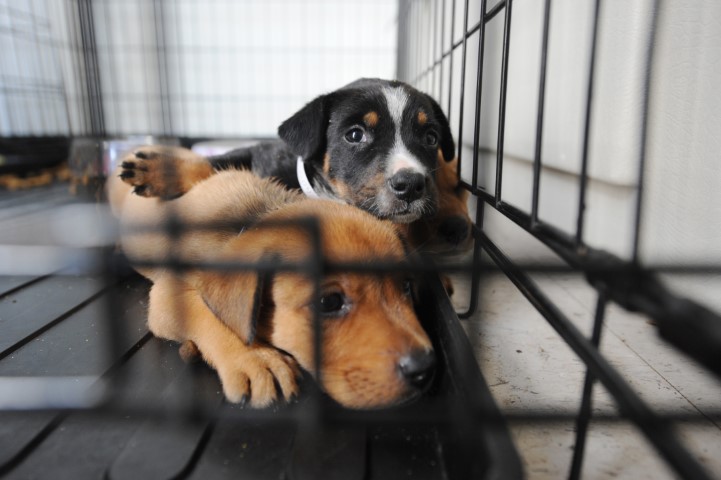Hurricane season is in full swing and the NOAA is showing multiple storms in the Atlantic. Are you prepared if any of those storms decide to come our way? Do you have a disaster plan for your pets?
Last year we had a big scare with Irma. We were lucky that time. But we learned that many pet owners didn’t have a hurricane preparedness plan for their pets. The doctors and staff here at the Animal Clinic of St Pete, sincerely urge all pet owners not to wait until the last minute to create a plan of action to keep pets safe during a disaster.
Use these hurricane preparedness questions to get started:
- Is your pet current on vaccinations so it can be boarded or travel on a plane in case of an evacuation?
Evacuation Shelters, Boarding Kennels and Airlines all require pets to have proof of certain vaccinations before being allowed entry to their facilities. Often, right before a big storm hits, we are inundated by pet owners who waited till the last minute to get their pets these vaccinations. Unfortunately, we aren’t always able to fit in every animal that needs these important shots. Please plan ahead. Get your pets vaccinated before hurricane season starts. - If your pet is on daily medication, do you have enough of it to last at least 1-2 weeks?
If your pet is on medication that is vital to his/her health, don’t let the medication run out in the middle of an evacuation. Get these prescriptions filled early. If you wait til the last minute to do this, we may not have enough of the medication left that your pet requires. We don’t want to send you away without the medication your pet needs, especially during an already stressful event. - Is your pet microchipped and if so, when was the last time you updated your contact information for it?
While microchipping is not a GPS system, it is still a valuable tool to help you and your pet be reunited if you become separated. Even if your pet has your contact information on his collar or tag, remember that these things can be lost or removed. A microchip is a permanent part of your pet’s body. When people find stray animals, they often take them to vet clinics, shelters and other animal-related facilities to be scanned. The device used to scan for the chip gives the facility the unique number assigned only to your pet. This number is then used to locate your contact information. If your contact information is not kept current, there will be no way to reunite you with your lost pet.
If you don’t have the login information for the company that issued your pet’s microchip or you’ve forgotten the name of the company, go to http://petmicrochiplookup.org. This is an search tool created to help pet owners find the company that their pet’s microchip is registered with. Simply enter your pet’s microchip number to be directed to the correct company and their contact number. Don’t wait. Update your contact information today. During times of disaster, these companies will be swamped with people trying to find lost pets. - Do you have enough water for yourself and your pet?
Your pet will get thirsty too. Humans need about one gallon of water per day. Large dogs drink more than small dogs, so consider this when planning how much to take with you. - Do you have a pet carrier, harnesses, leashes, etc?
If you don’t already have these items, get them now. Like vaccinations, most evacuation shelters require that you have these things. You don’t want to be caught without them. Crates are a good investment anyway and they last a long time. Having a properly-fitted harnesses, collar and leash is something every pet owner should have as well.
Some additional tips for keeping your pet safe during a natural disaster:
- This may be obvious, but as part of your hurricane preparedness, make sure you have enough of your pet’s regular food. Feeding pets foods that they aren’t used to eating, can cause nausea, vomiting and diarrhea. Trust me, you don’t want to deal with diarrhea on a long drive. It isn’t pretty.
- Carry a current photo of your pet, so you can claim them or put out lost-pet flyers and ads for them.
- Know what hotels and shelters allow pets. This site can help: https://www.bringfido.com/lodging/
- Keep a copy of current medical records for your pet, including the medications they are on. If you need to use a vet during your evacuation, they will want to know these things and telling them “the little white pill” won’t give them a clue to your pet’s condition.
- Most importantly, please do not leave your pet at home if you evacuate. If you aren’t able to bring them along, try to arrange for them to stay with a friend or pet boarding facility in a safe zone until you can come back for them.
Hurricanes are a fact of life here in Florida. Ensuring that everyone in your family (including the furry kids) is prepared in the event of a disaster will go a long ways towards making an evacuation a less stressful event.


